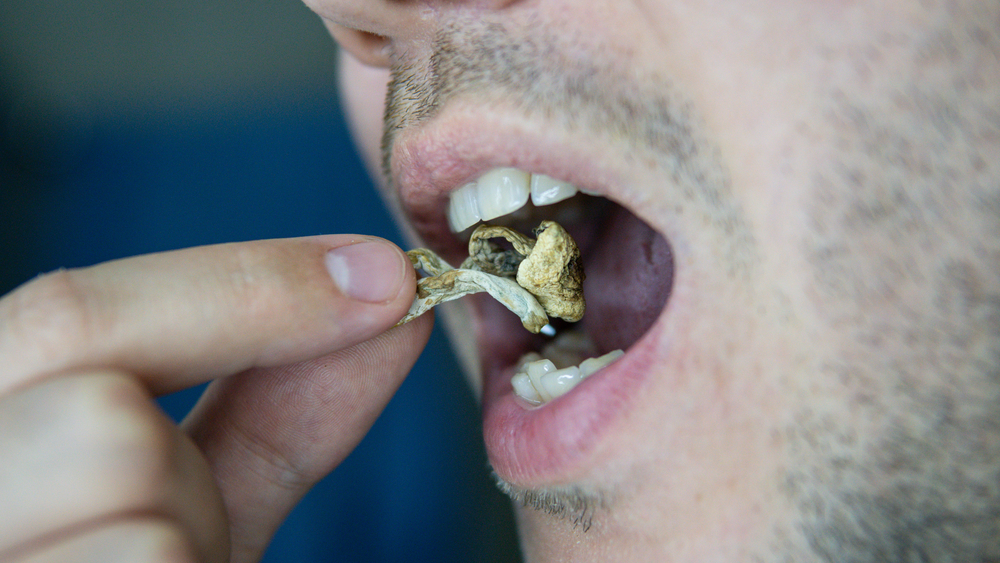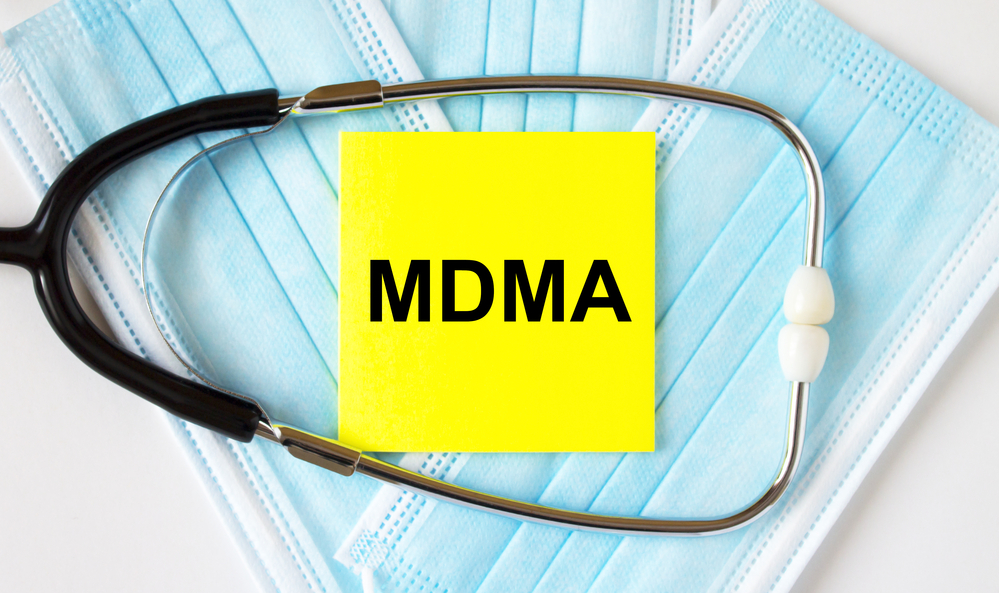
Lawmakers in the state of Missouri may leap into a new level of decriminalization and legalization of federally prohibited Schedule 1 drugs. We are not just talking about cannabis either. Missouri would be the third state in America to protect the ‘right to try’ for citizens when it comes to alternative medicines like MDMA and psilocybin (magic mushrooms).
State Representative Jim Neely (R) is the sponsor of the legislation. He is a physician and has a 40-year-old daughter battling colon cancer. The story of his daughter Kristina was featured on PBS NewsHour. An interview to explain from a patient’s perspective, what extended right to try laws could provide patients with life-threatening chronic or terminal diagnoses.
Rep. Jim Neely made a written statement that compassionate care options should be broadened to improve the comfort of patients in end-of-life care. When all other modalities of treatment have been tried and exhausted, patients should not have to suffer pain and discomfort. Because certain off-label uses of controlled substances are not a legal option. HB 1176 will build on Missouri’s existing ‘right to try’ law.
Caregivers look for every alternative medicine and holistic therapy that can help their loved ones cope. In some cases, alternative therapies with controlled substances can not just comfort symptoms, it can extend the life of a patient in many ways. Stimulating appetite and improving sleep quality are two ways off-label use of controlled substances can help.

The definition of the “right to try” legislation starts with the premise that patients in end-of-life care should have more options. Whether that means alleviating symptoms or making them more tolerable so that patients do not suffer, or help provide additional resources to the patient’s immune system, giving them more comfort and time within their terminal diagnosis.
Patients and family’s value that time. In fact, many exhaust every possible experimental therapeutic option to buy some extra time. Life is precious, and when a patient can be made comfortable and free from suffering debilitating symptoms, they value that extra time with their loved ones.
The right to try laws say that families and patients have a constitutional right to use any chemical therapy or medication (on or off-label use) that can help only after they have exhausted all other conventional methods of pain or symptom relief.
A terminal diagnosis is not sufficient grounds to explore off-label or experimental therapies with Schedule 1 drugs. Medical documentation is required to prove that all other treatment options had been used. And a primary care provider or hospice care team must also prove that the other types of pharmaceutical therapies became ineffective for the patient.
Right to try does not simply mean a family can purchase and legally administer drugs like MDMA and psilocybin. It means that they can petition the state for authorization to use them, for the compassionate care of a loved one.
Whenever an unconventional approach to patient care is suggested, there is always opposition, even in extending compassionate care for terminally ill patients. It is contradictory when you consider that the main safety concern of using Schedule 1 drugs is addiction or overdose.
A terminally ill patient may become addicted to a prohibited substance administered. But then again, opioids used in end-of-life care are also highly addictive. And that does not seem to be a consideration. It is a de facto reality of care for patients with terminal diagnoses.
The benefits outweigh the risks in the eyes of the patient and their loved ones. And there is increased focus not only on symptom management but the emotional or mental health needs of patients in hospice care. The potential for off-label use to help patients manage depression and anxiety.
Opponents of ‘right to try’ laws claim that separate state legislation is not required. That is because the Food and Drug Administration (FDA) already has a special appeal process. Any caregiver with the assistant of a primary care provider (PCP) can petition to get approval for off-label use. And that includes other Schedule 1 drugs on the Controlled Substances Act.
Did you know that it can take over 15 years and up to $18 billion dollars to take a prescription medication through all phases of approval? Before patients can access new therapeutics, the drug must be approved by the Food and Drug Administration (FDA). A frustratingly slow process for families who need additional options for their loved ones.
With ‘right to try’ legislation, patients can be referred to human trials of experimental drug therapies. The FDA has the ‘expanded access’ program that can be appealed on a case-by-case basis. The Goldwater Institute has helped by consulting with states that are considering the ‘right to try legislation.
To expand compassionate care for patients. President Donald Trump signed the “Right to Try Act” in 2018, which made it possible for states to initiate new laws for patients in hospice circumstances. And more states are expected to introduce ‘right to try’ legislation in 2021 and 2022.
Rather than augmenting laws after the launch of medical cannabis programs, Missouri is addressing the need proactively upfront. And that is good news for patients and their families.
Rep. Jim Neely’s proposed HB 1176 would allow manufacturers to require payment for the ‘right to try’ drug used by the patient. And it would eliminate the need for health insurers to cover the service. Insurance companies do not want to incur the expense or the liability of endorsing the use of a Schedule 1 drug for hospice care.
Also, the medical state licensing board would not be able to take legal action against a physician based on a recommendation for off-label use of a prohibited substance. That would protect doctors from the civil action and place the responsibility on patients and their caregivers for choosing an experimental therapeutic.

Oregon was the first state to legalize the use of psilocybin (magic mushrooms) for mental health treatments. There are significant clinical studies that suggest psilocybin can provide relief from trauma and treatment-resistant depression. Two mental health conditions are common with patients who have received a terminal illness diagnosis. The use of MDMA and other psychedelic drugs in palliative care has been explored with clinical research. Since mental health burdens are common for people in hospice care, psychedelics can both relieve mental health and physiological symptoms for patients.
Read: “Psychedelics in Palliative Care” on Scientific American.
A study from the Massachusetts General Hospital, Columbia, and Yale found that treatment with psychedelics (in lieu of invasive therapies) could extend the life span of cancer patients. By an average of three months or longer.
What is the value of time? When you are losing a family member, time becomes the most precious commodity. In palliative care, that extended life span gives families the gift of more togetherness. A chance to transition and to see their family member in less emotional or physical pain. And the option to choose off-label use of psychedelics or other Schedule 1 drugs on the Controlled Substances Act should be available for patients, and families.
Featured Image: Cavan | Deposit Photos
No Information on MarijuanaDoctors.Com should be used to diagnose, treat, prevent or cure any disease or condition. You can view our Full Disclaimer here.